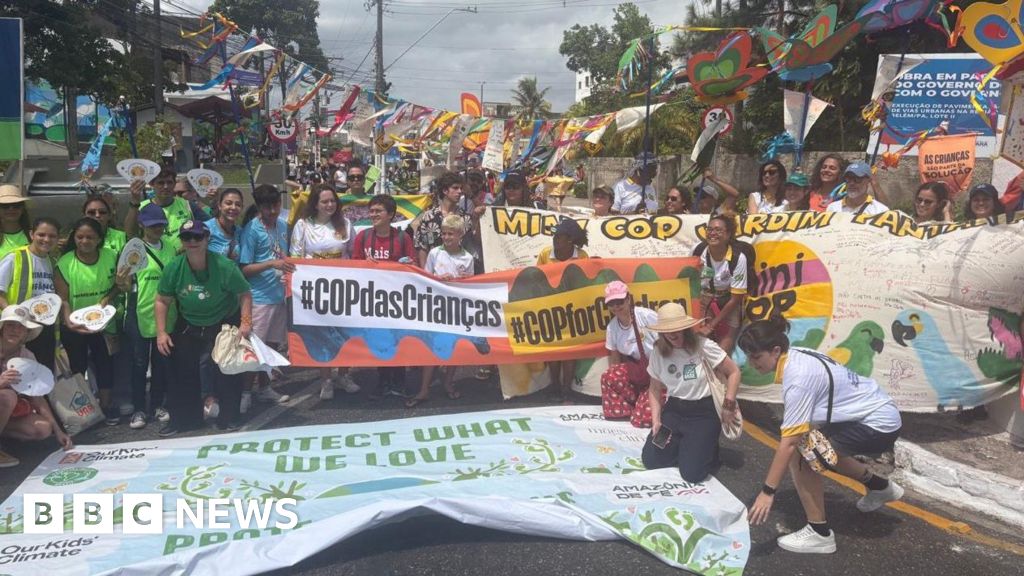Thousands Rally at COP30 in Belém Demanding Climate Justice and Amazon Protection
The vibrant city of Belém, Brazil, currently hosting the critical COP30 climate talks, has become a focal point for thousands of passionate climate activists. These demonstrators have taken their urgent message directly to the gates of the UN summit, marching to the pulsating rhythm of sound systems, their voices echoing with chants like "free the Amazon."
A Powerful Display of Protest
A powerful visual statement emerged from the procession: three giant coffins, starkly labeled "Oil," "Coal," and "Gas," flanked by two ominous grim reapers, symbolizing the death wrought by fossil fuels. Indigenous communities, prominent in the march, carried signs proclaiming "the answer is us," highlighting their ancestral wisdom and role as guardians of the planet. Amidst the heat, an inflatable elephant and anaconda weaved through the diverse crowd, adding to the protest's impactful imagery.
This significant demonstration marks the first time since 2021 that protesters have been granted permission to gather outside UN climate talks, a stark contrast to the preceding three summits held in nations with restrictive protest laws.
Voices from the Frontline
Voices from the frontline underscored the urgency. Brianna Fruean, a climate activist from Samoa – a low-lying island nation acutely vulnerable to climate change – shared her community's struggle: "Fossil fuels are still being burned. We know all too well what it's like to live on the frontline of climate change." Ilan, representing the non-governmental organization 350 and a resident of Brazil, emphasized, "We are here after so many COPS, marching for justice, for the end of fossil fuels."
Advocating for Indigenous Rights and Global Solidarity
The march saw thousands participating, including indigenous communities and Brazilian youth groups. Many indigenous demonstrators held signs demanding "demarcation now," advocating for legal recognition and ownership of their traditional territories. Experts widely recognize these communities as the most effective protectors of the Amazon's unparalleled biodiversity and vital forests.
While the main protest unfolded in Belém, solidarity actions, or "sister protests," took place globally, including in the UK, underscoring the worldwide demand for climate action. This wave of public expression followed a security breach earlier in the week, where protesters with signs broke through lines at the summit, resulting in minor injuries to two security personnel and some limited venue damage.
COP30 Negotiations and the Brazilian Paradox
Meanwhile, inside the COP30 talks, nearly 200 nations continued negotiations on Saturday, striving for breakthroughs in tackling climate change. Despite high stakes, progress during the first week was notably slow. Nevertheless, some delegations remain committed to pushing for a concrete strategy to honor past commitments and transition away from planet-warming fossil fuels.
Ironically, while Brazilian President Luis Ignacio Lula da Silva hosts the talks, strategically choosing Belém to spotlight the Amazon and its indigenous peoples, his government recently approved a permit for the state oil company to explore for oil near the mouth of the Amazon. This decision casts a shadow over Brazil's commitment to climate action and highlights the complex challenges inherent in global climate negotiations.

